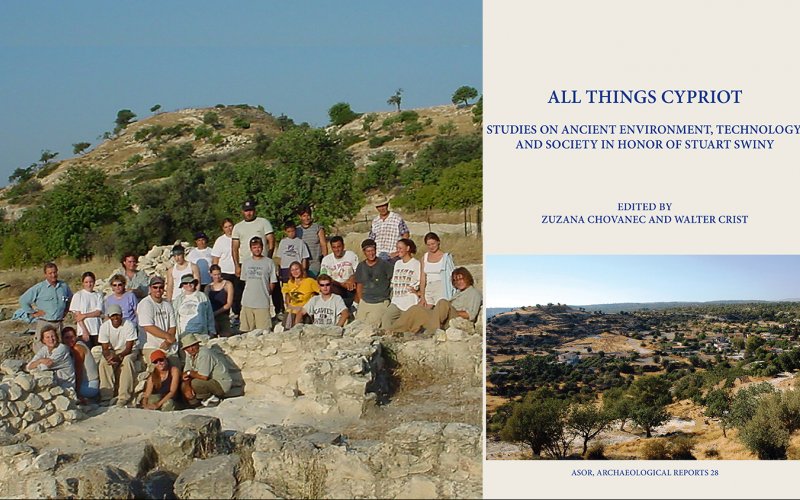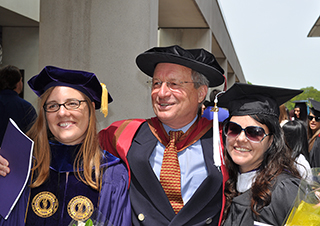A Book Honors a Remarkable Archeologist and Teacher

ALBANY, N.Y. (May 18, 2021) — Over the course of his distinguished six decades as an archeologist, Stuart Swiny shed light for the first time on prehistoric settlement in the island of Cyprus. During 18 years on the faculty at UAlbany, his classes lit the path for numerous students to bright futures in archeology. Many other students, who didn’t pursue the field, still considered his courses the best or among the best of their student lives.
Two of those Swiny/UAlbany alums have now edited a book dedicated to his life, work and legacy, All Things Cypriot: Studies on Ancient Environment, Technology, and Society in Honor of Stuart Swiny.
Zuzana Chovanec, PhD ’13, and Walter Crist '04 recall Swiny, who served in the departments of both Classics and Anthropology and as longtime director of UAlbany’s Institute of Cypriot Studies, as “a dedicated teacher and mentor, diligent researcher, professional collaborator and tireless advocate for the history of Cyprus.”
In terms of his scholarly impact, which included 18 years as director of the Cyprus American Archaeological Research Institute (CAARI), they write that he “redefined the scope and reach of the archaeology of Cyprus.” Swiny, working alongside his wife and accomplished scholar Helena (Laina) Wylde Swiny, “helped to bring a focus to prehistoric settlement archaeology on the island that was largely absent before.”
Chovanec and Crist’s book consists of 18 chapters of essays by archeologists greatly influenced by Swiny. In addition to chapters authored by the editors, there are ones by five other UAlbany graduates: Genevieve Holdridge '01, Laura Swantek '02, MA '06, Katelyn Dibenedetto '12, Marvin Kushnet MA '86, PhD '14, and William Weir BA '01, MA '06. One chapter addresses his career at UAlbany.

“I loved teaching at UAlbany for 18 and a half years,” said Swiny, now an emeritus at UAlbany living in Dover, Mass., near Boston. “I really enjoyed helping and working with my students, undergrad and grad, and giving back to a field that I was deeply involved in and found equally satisfying. And finally, the University treated me very well and seemed to appreciate what I was doing.”
Swiny's regular classroom courses annually drew superlative reviews from students, but the most unforgettable of his credit-bearing offerings for bachelor's, master's and PhD students came as part of Cypriot archeological expeditions to such Early Bronze Age settlement locations as Kourion (1997), Pyrgos (2000) and Kaminoudhia (2002).
“A wonderful bunch,” is how he described his young co-researchers on the 2002 trip. “Nearly all described the experience of working with my wife, Helena, and I in Cyprus as a ‘life changing experience’ and often the ‘best summer in their life.’ We were a very close team, worked hard, played hard — Cypriot traditional weddings are a big deal and we were a big deal in the village so were always included and feted — and lived a pretty idyllic life.”
All Things Cypriot builds from Swiny’s holistic approach to Bronze Age archaeology, engaging the themes of ancient environments, technology and society in a series of chapters. Chovanec and Crist write that the essays “celebrate Swiny’s contributions and demonstrate their transformative influence on topics that range from the Neolithic to Roman periods in Cypriot archaeology.”
The editors make note that their volume is also forward-looking, taking stake of where Cypriot archaeology stands after roughly 40 years since Swiny's CAARI directorship began. “It anticipates new projects, innovations and approaches that the next generation of Cypriot scholars will use to build on his work,” said Chovanec, who is a volunteer research associate in Anthropology at UAlbany and an anthropology trustee at CAARI.
She added, “With this volume, we would like to thank Stuart for giving so much of himself to so many — and always with a bit of fun.”




